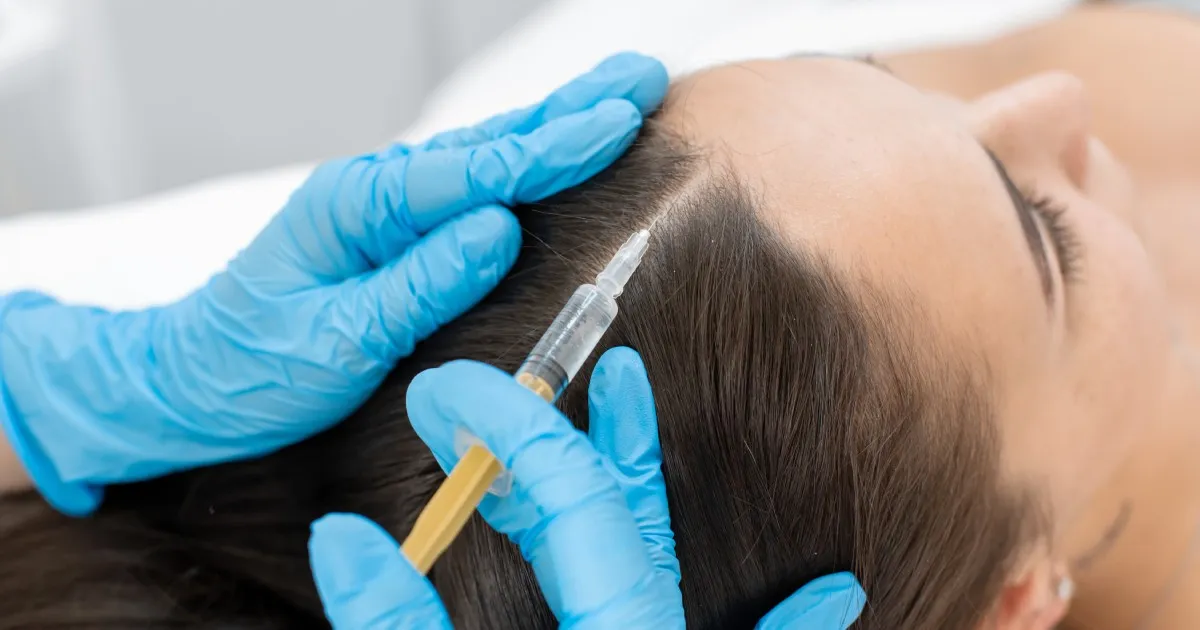
Do you hear the saying, “Just pop a pill, and your depression will be better” often? Depression affects many people in this life, and unfortunately, the treatment for this disease isn’t a one-size-fits-all – not everyone can treat their depression or other mental health concerns with medication.
In fact, according to an article with PubMed Central, it states that an estimated 10%–30% of patients with major depression do not respond to typical antidepressant medications and that this group of patients needs trials of a variety of treatment strategies.
And did you know that depression overall wreaks havoc on your body? It sure does! To learn more, take a look at our relevant article, 10 Impacts of Depression on the Body and see for yourself!
Medication Doesn’t Help My Depression!
Maybe you have been diagnosed with depression and told to take a pill and wait for it to work, up to 4 weeks for some medications, and help you – only to find out that it’s not helping you at all, or at best – a little bit but certainly not enough.
When medications don’t help with your depression, this can leave you feeling very down, more depressed, and feeling utterly hopeless that you will never beat this terrible disease.
Thankfully other various methods can be practiced to help those with treatment-resistant depression such as acupuncture, light therapy or brain stimulation therapies, and more. Alternatively, there is also something called ketamine therapy.
What is Ketamine?
Before we discuss ketamine therapy, it’s essential to know what it is. Ketamine is something widely used for surgeries or injuries from war – acting as an anesthetic.
How is Ketamine Better Than Antidepressants?
How does this then help depression? The tranquil effect in the ketamine is where its power lies. The result is very similar to other hallucinogens – in some cases, more so.
The effects last for as long as days to weeks. It allows patients with depression to feel calmer, happier, more stable, and more – longer than antidepressants and even SSRI’s. Effect duration is one of the most substantial reasons why patients love ketamine therapy!
According to an article from PSYCOM, Dr. Levine states, “Its fast-acting nature may be the most important feature of the medication.” She continues, “Of the more than 3,000 patients we’ve treated with ketamine, I feel confident saying that the treatment likely spared hundreds of lives. That’s the kind of significant and immediate impact ketamine can have.”
Unlike antidepressants and SSRI’s, there is no reported weight gain, as much nausea and even more importantly, no suicidal thoughts. That is a risk one takes when they go on an antidepressant or SSRI – with ketamine therapy, you not only avoid the risk of suicidal thoughts, but it has also shown to decrease suicidal thoughts significantly and quickly!
In an article from Yale Medicine, John Krystal, MD, chief psychiatrist at Yale Medicine and one of the pioneers of ketamine research in the country, says, “With most medications, like Valium, the anti-anxiety effect you get only lasts when it is in your system. When the Valium goes away, you can get rebound anxiety. When you take ketamine, it triggers reactions in your cortex that enable brain connections to regrow. It’s the reaction to ketamine, not the presence of ketamine in the body that constitutes its effects,” he says.
Imagine being able to go on a depression medication that not only helps your anxiety, depression, PTSD, and more, but that also doesn’t cause more of it? That’s an incredible reason for considering ketamine therapy, and it’s no wonder it’s widely popular!
What’s the Procedure for Ketamine Therapy?
Ketamine therapy isn’t a very complicated procedure, and its effects are almost instantaneous! Patients get the ketamine through an IV infusion in their arm, typically 3x a week for the first week and then 2x for the second week, etc., gradually decreasing to once per month.
What are the Side Effects and Risks of Ketamine Therapy?
Thankfully ketamine therapy doesn’t have a lot of uncomfortable or dangerous side effects, as well as risks. While you may experience some dissociative side effects, as well as temporary increased heart rate and blood pressure, they are often temporary and generally handled well.
Considering this is a hallucinogen, while the concern of addiction has come into question, patients don’t run the risk of getting addicted, provided they do it properly and safely with the help of the administrator and with very low doses.
Ketamine Can Literally Be a Lifesaver!
If you are finding that taking antidepressants isn’t helping your depression or other mental health concerns that you struggle with, please consider ketamine therapy. It has saved so many lives and has decreased suicide in the overall population – it’s truly beneficial and life-changing!
As with anything medically related, it’s best to talk to your doctor about this and weigh all the pros and cons before you decide if ketamine therapy is right for you. Schedule an appointment to talk more about ketamine’s benefits here.
Share in the comments below: What is ONE thing you have learned about ketamine therapy from this article?
Keywords: Healthy Living, Healthy Lifestyle, Mental Health, Mental Health Awareness, Depression, Intravenous Ketamine Therapy, Infusion Therapy, Ketamine, Medicine, Health, Prevention, Stacy McIntyre, Rejuvenate IV Hydration and Wellness Center, Olympia, Washington, Small Business, Local Business, Women in Business, Locally Owned, Love Local



